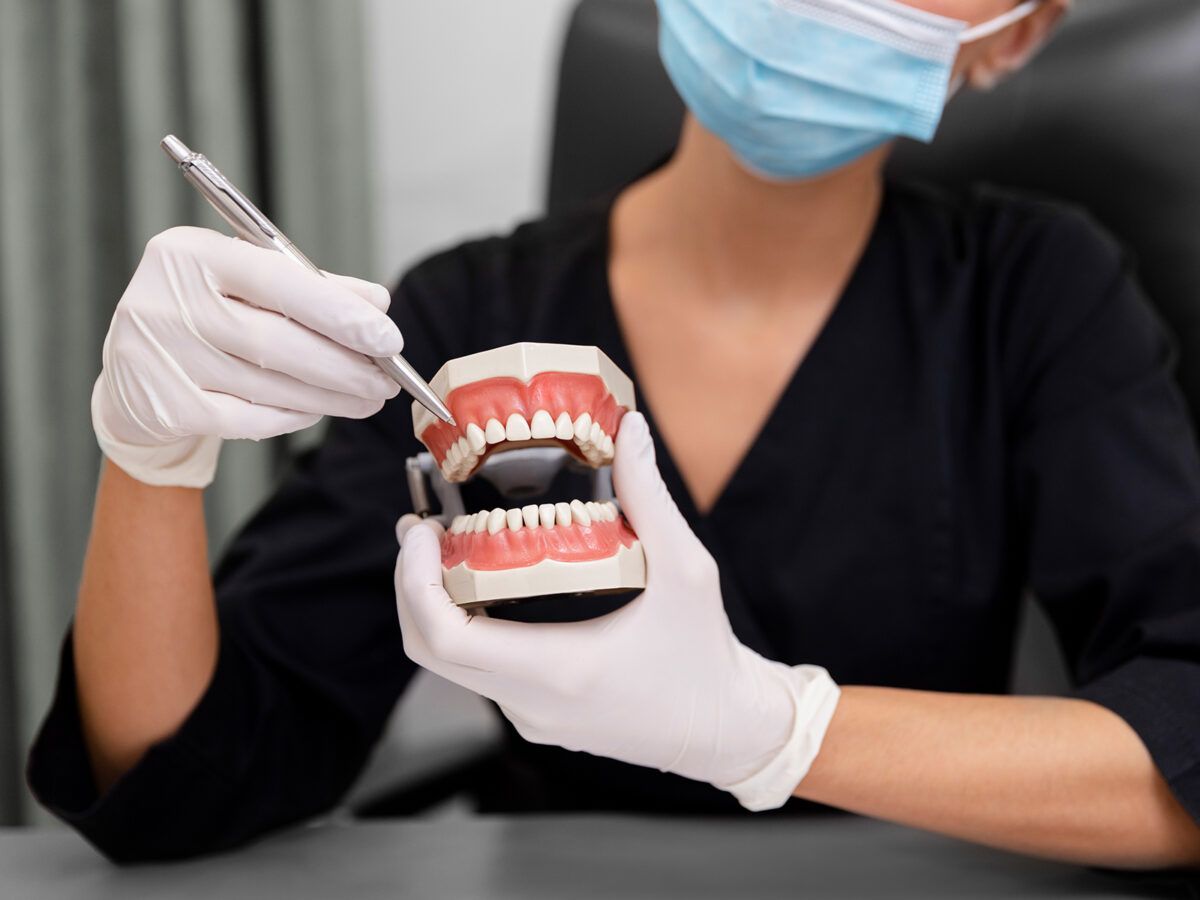River Walk Dental Orthodontics
Blog
Dental hygiene tips for healthy teeth & gums

What Is The Difference Between Enamel And Ceramic?
The hardest substance of the human body, tooth enamel, is a hard and shiny outer covering of our teeth. It is mainly made up of minerals which make it harder than a bone. The minerals strengthen the enamel, protecting teeth from damage and keeping them white, bright, and healthy.
Ceramics is a substance used to make braces, crowns, and veneers. One of its types, called porcelain, is used in dental procedures. Similarly, like enamel, these are also hard and suitable for dental fittings. It is artificial or man-made and somewhat similar to natural teeth.
Though there are differences, the core objectives are to protect teeth from harmful substances. Enamel is naturally present in our teeth, and ceramic covers the broken enamel or bridges the gap between the teeth. It makes the teeth look similar to the natural teeth. Ceramics can be used as an alternative to the enamel.
What Are The Advantages Of Enamel And Ceramic?
Tooth enamel works as a shield for the inner sensitive layer of teeth, and it is the first layer protecting teeth from harmful substances in foods and beverages. Some of the important advantages of having strong enamel are:
- Keeps teeth white and bright
It’s a hard layer that protects teeth from stains caused by acids present in some food and beverages. Remineralizing enamel can be done by brushing teeth with toothpaste and adding calcium to the diet.
- Protects from tooth decay
When plaque buildup turns into sugar, it causes tooth decay. Enamel works as a protective layer that protects the tooth from cavities and decay.
- Prevent Gum Diseases
If plaque buildup becomes sticky and stiff, this can also cause disease in the gums. Keeping the enamel strong protects teeth and gums from harmful diseases.
- Prevent Tooth Loss
When teeth come in contact with some harmful substance, it can cause loss of teeth. But if you have strong and healthy enamel, which can easily protect your teeth from these substances.
Advantages Of Having Ceramic
Ceramics are similar to original teeth. But are used to replace damaged or broken tooth enamel. It is one of the most versatile options for changing teeth’ color, shape, and position. Some of the advantages of having ceramic crowns are:
- Highly Transparent
With properties similar to natural teeth, ceramic covers the damaged part, making it look identical to natural teeth.
- Resist Stains
They resist stains by making teeth look natural by mimicking the light-reflecting properties of the teeth.
- Bridge The Gap In Between
Ceramic crowns are also used to bridge the gap in your teeth. It also improves your smile and works as a false tooth to bridge the gap between two adjacent teeth.
- Resistant To Temperature
Ceramics are designed to be temperature resistant. Hence, you are less likely to experience sensitivity to hot or cold temperatures.
How To Protect Enamel and Ceramic From Damage?
Preventing enamel and ceramic from erosion is an important task. With oral care practices and a dental-friendly diet, it is easy to protect them from any harm. Some of the tips to prevent enamel erosion are:
- Avoid excessive intake of sugar
- Limit acidic or citric food
- Rinse mouth after every meal
- Use a soft-bristled toothbrush
- Visit a dentist for checkups
Though ceramic is artificially made, it also requires proper care to protect it from damage.
- Avoid sticky or hard food items.
- Brush and floss
- Use night guard
- Avoid nail-biting habit
- Maintain oral hygiene
Lastly, enamel and ceramic play equally in maintaining oral hygiene. However, it is essential to choose the option that suits your needs. Enamel, a naturally present substance on the teeth, requires much care to expand its lifespan. And Ceramics works well in that case as it also is a protective shield with more advantages.
